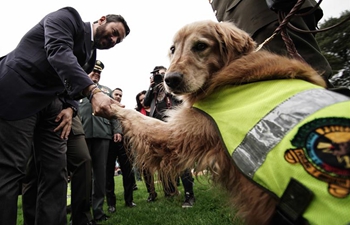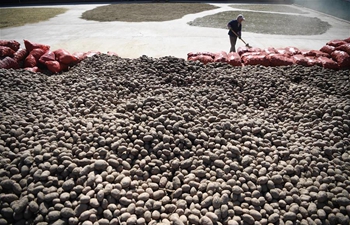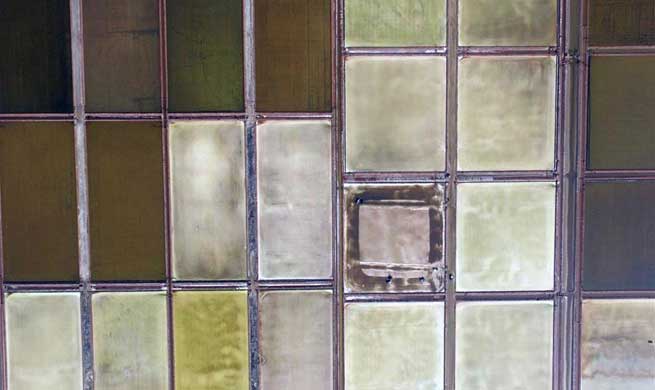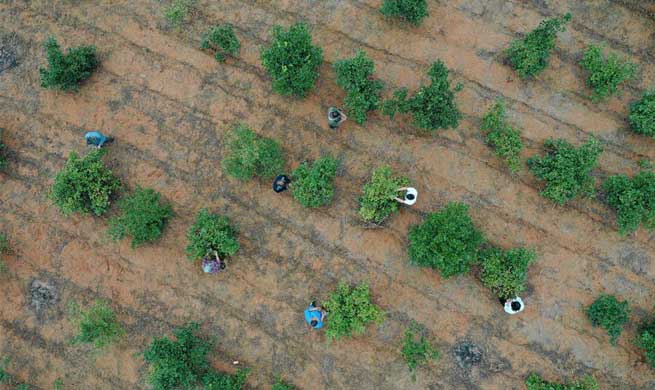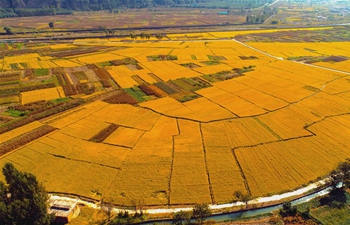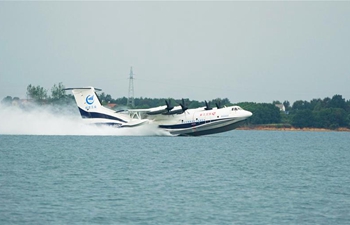TOKYO, Oct. 3 (Xinhua) -- A robotic explorer has successfully landed on the asteroid Ryugu after being released from Japan's Hayabusa2 space probe, the space agency here said Wednesday.
According to the Japan Aerospace Exploration Agency (JAXA), the small-sized Mobile Asteroid Surface Scout, also known as MASCOT, jointly developed by German and French space agencies, touched down safely.
"We are relieved as we were able to lead the (landing) mission to success as part of a large international team," Yuichi Tsuchida, an associate professor at JAXA and Hayabusa2 project manager, was quoted as saying.
The European-developed explorer weighs about 10 kg and is equipped to capture images and take surface temperatures of the asteroid and its soil, JAXA said.
The box-shaped probe is powered by lithium batteries and can be mobile for 16 hours and operate without sunlight, the space agency said.
On Sept. 22, two small robotic rovers launched from Hayabusa2 also successfully landed on Ryugu, which is about 300 million km from Earth and 900 meters in diameter.
The rovers will take images of the asteroid and perform other functions such as measuring its surface temperature.
The two rovers have been designed to "hop" along the surface of the asteroid as its low gravity would complicate the traditional way such robotic explorers usually roll on wheels or tracks.
Hayabusa2 reached its intended destination on June 27 near the asteroid, after traveling for more than three years, JAXA said.
According to the agency, the 600-kg Hayabusa2, which was launched from the Tanegashima Space Center in southwestern Japan in December 2014, has experienced no problems throughout its journey totaling 3.2 billion km.
The agency said that in total, Hayabusa2 is scheduled to make three landings on the asteroid and collect rock samples and will stay close to Ryugu for one and a half years.
During this time it will, according to JAXA, conduct a number of exploratory activities in an attempt to try to find clues about the solar system's evolution and the beginning of life itself.
Hayabusa2's mission will be completed when it returns to earth in 2020 with the samples of rocks it has collected from Ryugu, which is thought to contain water and other materials that could possibly support life.
In 2005, Hayabusa2's predecessor failed to land an explorer robot on the asteroid Itokawa.
